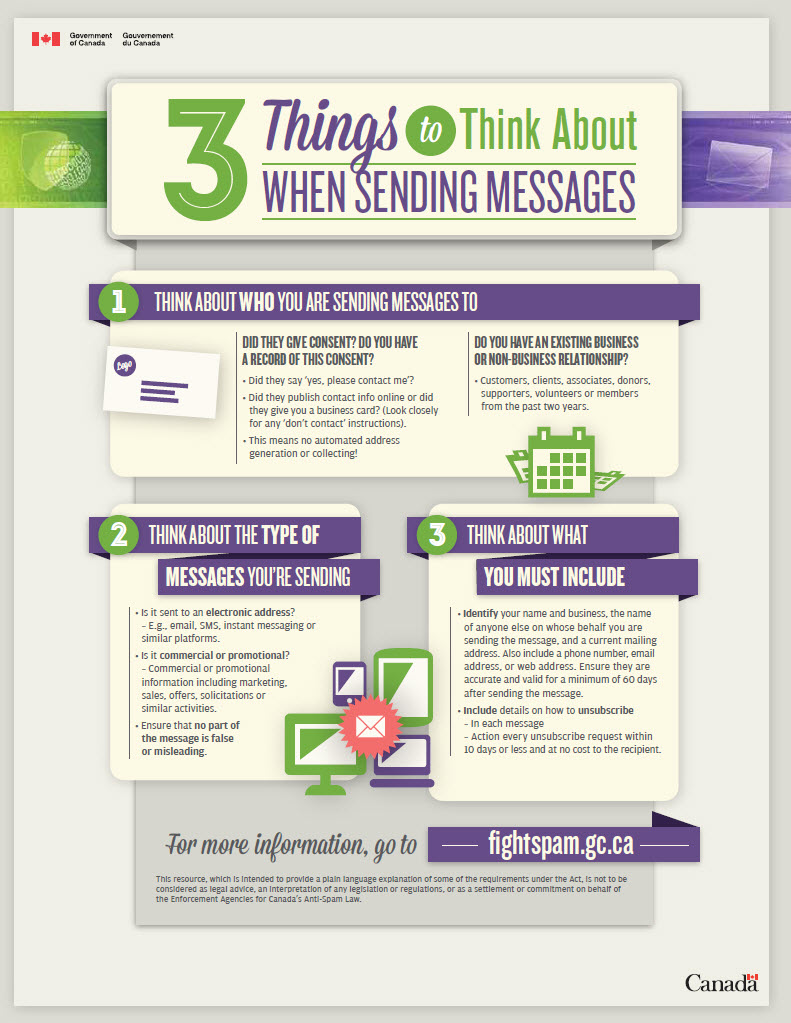Canada’s New CASL Anti SPAM Law Effective July 1st 2014
On July 1st, 2014 the new changes to the Canadian Anti SPAM Law went into effect. This new legislation is designed to protect consumers from unsolicited email from those who would otherwise abuse email sending. Below we will outline the core takeaways and how this may change how you currently operate.
Implied or Express Consent is Required:
In the USA the CAN SPAM Act of 2003 allows one to send marketing email to an email address that hasn’t opted in or consented to receiving email in the past as long as you provide an easy way to unsubscribe. The new Canadian law doesn’t work that way. Users must either give express consent (filling out online form, checking a box during online checkout, etc) or implied consent in order to be eligible recipients of any marketing email. Implied consent is given by being a customer, client, associate, donor, supporter, volunteer, etc in the past two years.
No Part of The Message Can be Misleading:
Similar to the USA CAN SPAM Act law, the new Canadian law requires that every part of the electronic message including subject line, FROM name and email address, and body content be accurate and not misleading.
Required Elements:
Most of these are universal to both CASL and the CAN SPAM Act.
- Name and Business
- Name of anyone else on whose behalf you are sending the message
- Current mailing address
- Either a phone number, email address, or web address (Above and beyond CAN SPAM Act of USA)
- Details on how to unsubscribe in EVERY message
All these elements must be accurate and valid for a minimum of 60 days after sending the message
All unsubscribe requests must be honored within 10 days or less at no cost to the recipient.
Here is a great info-graphic made available by the Canadian government. This and other resources are available at http://fightspam.gc.ca/

